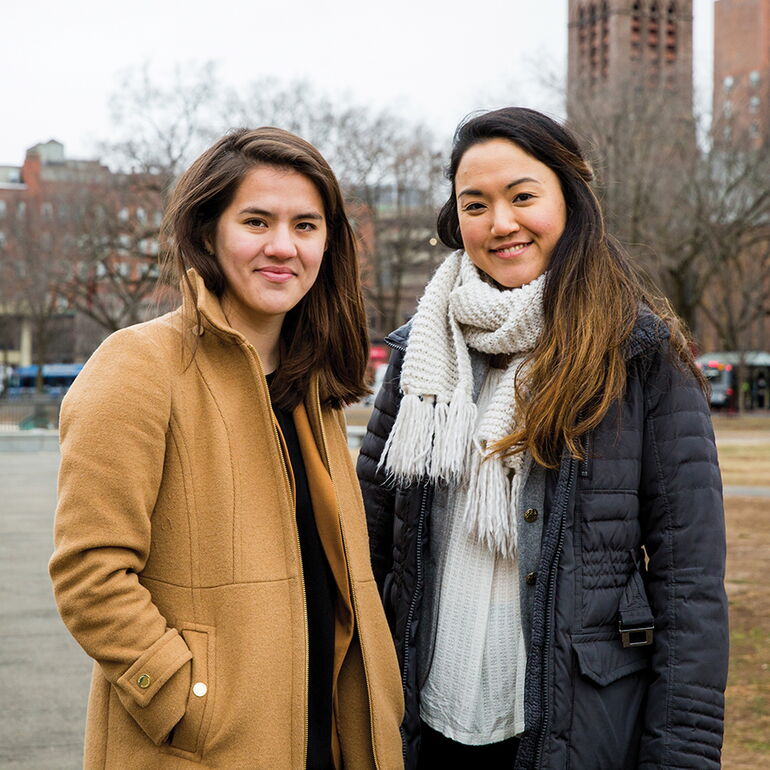Processing Your Payment
Please do not leave this page until complete. This can take a few moments.
-
News
-
Editions
-
- Lists
-
Viewpoints
-
HBJ Events
-
Event Info
- 2024 Economic Outlook Webinar Presented by: NBT Bank
- Best Places to Work in Connecticut 2024
- Top 25 Women In Business Awards 2024
- Connecticut's Family Business Awards 2024
- What's Your Story? A Small Business Giveaway 2024 Presented By: Torrington Savings Bank
- 40 Under Forty Awards 2024
- C-Suite and Lifetime Achievement Awards 2024
- Connecticut's Health Care Heroes Awards 2024
-
-
Business Calendar
-
Custom Content
- News
-
Editions
View Digital Editions
Biweekly Issues
- April 15, 2024
- April 1, 2024
- March 18, 2024
- March 4, 2024
- February 19, 2024
- February 5, 2024
- January 22, 2024
- January 8, 2024
- Dec. 11, 2023
- + More
Special Editions
- Lists
- Viewpoints
-
HBJ Events
Event Info
- View all Events
- 2024 Economic Outlook Webinar Presented by: NBT Bank
- Best Places to Work in Connecticut 2024
- Top 25 Women In Business Awards 2024
- Connecticut's Family Business Awards 2024
- What's Your Story? A Small Business Giveaway 2024 Presented By: Torrington Savings Bank
- 40 Under Forty Awards 2024
- C-Suite and Lifetime Achievement Awards 2024
- Connecticut's Health Care Heroes Awards 2024
Award Honorees
- Business Calendar
- Custom Content
Collab New Haven founders are not just building businesses – they’re building entrepreneurs
 PHOTO | DAVID OTTENSTEIN
Caroline Smith, Margaret Lee - Co-founders, Collab New Haven
PHOTO | DAVID OTTENSTEIN
Caroline Smith, Margaret Lee - Co-founders, Collab New Haven
Collab New Haven co-founders Caroline Smith and Margaret Lee believe that everyone — of every age, from every background
and every neighborhood — can become an entrepreneur.
They believe that by investing in local entrepreneurs communities can create a model of economic development that is not only
sustainable, but pretty powerful, too. They believe that by empowering these entrepreneurs, transforming them into heart-
powered, strength-centered leaders, you begin to change the conversation about economic development in both New Haven and
across Connecticut.
And it all begins with access.
Accelerating entrepreneurial leaders
The two 2014 Yale graduates met four years ago at a campus entrepreneurship event called the Yale Innovation &
Entrepreneurship Bazaar. Lee was working at the Yale Entrepreneurial Institute, which is now the Tsai Center for Innovative
Thinking at Yale, and Smith was working as a community organizer for SeeClickFix.
Lee said as soon as she met Smith, they immediately began collaborating on ways to bring the Yale and New Haven
entrepreneurship ecosystems closer together.
Lee’s expertise in startup incubation and entrepreneurship dovetails with Smith’s know-how in community organization and
advocacy, resulting in the partnership fittingly dubbed Collab New Haven, named for its driving focus: collaboration.
Since its inception, Collab has received 211 applications from 458 entrepreneurs, nearly two-thirds (64 percent) having been
female-led, 72 percent people-of-color-led, and 46 percent women-of-color-led ventures. If you include Collab’s food business
accelerator with CitySeed that was completed in February, 34 ventures will have finished the Collab program.
“They go through the program and they’re at this really amazing potentially catalytic state,” explains Lee. “How do we then
build the necessary infrastructure to really boost them on with real money and real resources? We don’t want to just educate; we
want them to be resourced.”
New Havener Lori Martin was accepted into Collab’s 10-week accelerator program last fall.
Having served as a longtime volunteer and the regional point person for Food Rescue U.S., Martin dreamed of creating a
nonprofit to address how food recovery correlates with environmental justice.
Using an app to connect shelters, soup kitchens and service-based organizations with restaurants, bakeries, dining halls and
grocery stores that produce and process excess food, Haven’s Harvest deploys volunteers to pick up and drop off loads.
Martin explains that Collab provided a viable means for transforming her dream into a realty.
“Collab is successful because Margaret and Caroline are deeply thoughtful and are undaunted by musings, tangents, fantastical
ideas of their venturers,” says Martin, employing a made-up but oddly apt term for the strivers Lee and Smith serve. “They are
deep listeners. After listening to business plans that feel incoherent and disparate, they read back what they heard — and they
have kept the wheat and ignored the chaff.
“In seeing the structure of work needed to move a venture forward, they ground their venturers’ work and increase their
determination and confidence,” Martin adds.
By bringing in corporate partners that are open to and interested in engaging with early-stage entrepreneurs, Smith says the
hope is to build relationships, expand networks and give all their partner ventures the tools, names and faces they need to build
their businesses out above and beyond the Collab cradle.
“The dream is that you can have multiple individuals from multiple neighborhoods from the greater New Haven area that will take
their one idea they have and build the confidence, build the network, have the education and the resources to not only impact their
direct community but to have their own economic success for themselves—that’s the dream,” says Lee.
Women in the workplace
The name of their game is accessibility. Lee and Smith want to ensure that entrepreneurship is accessible to everyone from
every neighborhood.
“Whether you’ve been here your entire life, you’re a single mother or you just arrived in this country yesterday, you can be an
entrepreneur,” Smith says.
Collab’s 10-week accelerator offers aspiring entrepreneurs $1,000, a mentor, legal and marketing services, co-working space,
child care and interpretation and transportation services.
Karla Lindquist, an economic development officer for the city of New Haven and Collab board member, says Lee and Smith
came to entrepreneurship via some of the structural inequities that the pair are now working to rectify through their programming.
“They have been successful because they understand that traditional entrepreneurship supports, and the professional
ecosystem more broadly, were not designed for broad swaths of the population,” Lindquist explains. “Women, people of color,
low-income people, parents of young children, people with disabilities, people with little formal education — these categories were
all underserved in terms of programming aimed at elevating their ideas.
“By providing supports to break down some of these barriers, they’ve been able to reach entrepreneurs that might have
otherwise been unable to participate in resources like a business-accelerator course,” Lindquist adds.
Smith says that in building a program, the pair sought to address the barriers facing the individuals they had hopes to attract to
Collab.
“The first thing we did was talk to a lot of women and we identified a lot of different kinds of barriers specific to women that are
financial, logistical and psychological,” Smith explains. “They have families [including often young children] and that’s a big part of their
life — and it should be. It shouldn’t be taken away from them and it shouldn’t prevent someone from building something.“
Another typical logistical barrier is transportation and timing.
“We were really specific when we first started this is what times work for people” to be able to attend Collab program sessions,
Smith says. “Making sure that people have the ability to come to our program. If they’re taking a bus or a train that they have the
funding” to pay for transportation.
Moreover, Lee and Smith set out to create a space where a woman, or anyone, feels confident to raise her voice and speak up.
Last fall, Collab created an event called “Confident,” a panel discussion on female entrepreneurship, for which four women
came to speak about their experiences in building new enterprises, the workplace and unique barriers that they confronted and
how they navigated male-dominated work environments, how they navigate their own perceptions around themselves, their own
self worth, their own self confidence, their beliefs and their ideas.
“There are success stories out there, and we want to put people onstage that look like folks that we want to serve, handing the
microphone to women and having them share their stories, their ups and downs,” Lee explains. “Someone that looks like you,
someone that has a kid, someone who has two kids, doing the work that you want to do.”
Redefining entrepreneurship
The traditional definition of entrepreneur is someone who makes money by taking a risk. But for Lee and Smith,
entrepreneurship is not so cut-and-dried.
“For us, we want to broaden that definition to someone who creates value — whether economic value or social value — by
taking a risk on behalf of the community they want to serve,” says Lee. “Community leaders, activists — anyone can have that
spirit. And the definition reinforces the notion that people who are closest to the problem are closest to the solution.”
Smith adds that individuals who know their neighborhoods best are best positioned to build businesses or nonprofits that impact
that community.
“As a state, there is so much value and so much [benefit] that can come from investing in individuals who are already here, who
already know this place and how are these individuals best positioned to resolve some of Connecticut’s deepest inequities,” Smith
says.
Lee and Smith sustain Collab’s programming in part through funding from an Innovation Places Grant by CTNext as a part of
the Elm City Innovation Collaborative, with partnership support from the New Haven Free Public Library. Additionally, they receive
financial support from Guilford Savings Bank and the Community Foundation for Greater New Haven.
In addition to the incubator program, Collab hosts office hours providing Connecticut entrepreneurs with a chance to deep-dive
into their ventures — whether it’s just an idea or an existing organization. Sessions are 30 minutes, conducted over the phone,
and open to anyone in Connecticut. In the last year, Collab has served more than 250 entrepreneurs through office hours.
By finding institutional partners, funders and investors who are interested in sparking inclusive economic development, Lee
says the pair hope to become catalysts for change in the economic-development landscape of the region.
“Right now, looking at the next year or two years, it’s about making sure that our entrepreneurs leave our program not only
feeling more connected, more educated and more confident but more resourced,” Lee says.
Which can become a perfectly viable model for the rest of the state, Smith adds.
“Connecticut is a really interesting state,” she says. “There’s this feeling that it’s an underdog state and we’re in this really
interesting moment of transition with a new governor and new administration that’s there’s this chance, this possibility, that we
have as a state that what if the story of Connecticut in the next 20 years is the state who really did inclusive growth right — that really pulled multiple stakeholders, multiple community partners [together] to do something that no other state, city or region has
ever done really well?
“We want to be one small part of that pipeline,” Smith says.
Beyond the traditional metrics of measuring success, Collab believes that to be truly successful in business, entrepreneurs
need confidence and connectedness.
Smith says the pair are excited about the role that Collab can play in Connecticut over the coming two decades, and are hoping
to help engineer a shift in entrepreneurship toward more inclusive growth, pulling on the people who are already here — ready,
willing and able.
As for their personal legacies in New Haven?
“Someone brilliant said people don’t remember what you did, but they remember how you made them feel,” Smith explains. “I
think we embed that into our program — how do we make people feel? I want people to feel like I was reliable, that I followed
through and that I was a really good friend.”

2022 Giving Guide
This special edition informs and connects businesses with nonprofit organizations that are aligned with what they care about. Each nonprofit profile provides a crisp snapshot of the organization’s mission, goals, area of service, giving and volunteer opportunities and board leadership.
Learn more
Subscribe
Hartford Business Journal provides the top coverage of news, trends, data, politics and personalities of the area’s business community. Get the news and information you need from the award-winning writers at HBJ. Don’t miss out - subscribe today.
Subscribe
2024 Book of Lists
Delivering Vital Marketplace Content and Context to Senior Decision Makers Throughout Greater Hartford and the State ... All Year Long!
Read Here-
2022 Giving Guide
This special edition informs and connects businesses with nonprofit organizations that are aligned with what they care about. Each nonprofit profile provides a crisp snapshot of the organization’s mission, goals, area of service, giving and volunteer opportunities and board leadership.
-
Subscribe
Hartford Business Journal provides the top coverage of news, trends, data, politics and personalities of the area’s business community. Get the news and information you need from the award-winning writers at HBJ. Don’t miss out - subscribe today.
-
2024 Book of Lists
Delivering Vital Marketplace Content and Context to Senior Decision Makers Throughout Greater Hartford and the State ... All Year Long!
ABOUT
ADVERTISE
NEW ENGLAND BUSINESS MEDIA SITES
No articles left
Get access now
In order to use this feature, we need some information from you. You can also login or register for a free account.
By clicking submit you are agreeing to our cookie usage and Privacy Policy
Already have an account? Login
Already have an account? Login
Want to create an account? Register
Get access now
In order to use this feature, we need some information from you. You can also login or register for a free account.
By clicking submit you are agreeing to our cookie usage and Privacy Policy
Already have an account? Login
Already have an account? Login
Want to create an account? Register





0 Comments